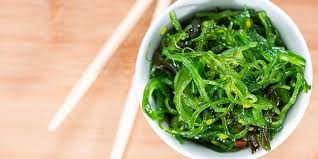Health Benefits of Seaweed

What is Seaweed?
Seaweed is the term for the many types of marine plants and algae that thrive in rivers, seas, and oceans. They come in various hues, including red, green, brown, and black, and their sizes range from tiny to massive underwater forests.
While seaweed may be found on beaches worldwide, Asian nations are more likely to use it as a staple.
Seaweeds are packed with minerals, including iron, zinc, magnesium, riboflavin, thiamin, and vitamins A, B, C, and K, regardless of whether they are cooked or eaten raw.
Since ancient times, seaweed has played a significant role in the diets of those living around the shore. Over 145 types are consumed globally now.
The following are a few of the most popular edible seaweeds
- Wakame
- Dulse
- Sea lettuce
- Nori
- Arame
- Kombu
- Kelp
- Chlorella
- Sea Moss
Speciality health stores sell seaweed in raw form สมัครสมาชิก UFABET วันนี้ รับเครดิตฟรีทุกวัน or as a supplement. Be sure to roast any raw seaweed you purchase to eliminate potentially dangerous microbes.
Nutrient Profile of Seaweed
Seaweed contains vitamins and minerals, such as iodine, potassium, zinc, magnesium, vitamin C, iron, and vitamin A.
It works exceptionally well for people with higher calcium needs because it is remarkably high in calcium. Folate, which guards against anaemia, is another method that gives you a nutritious boost.
Benefits Heart Health
Seaweed, including sea moss, is one of the best plant sources of omega-3 fatty acids, essential for general health and especially for the heart and circulatory system.
Additionally, it benefits heart health due to its high content of flavonoids, which are powerful antioxidants. These compounds may help manage and improve circulation.
Due to its flavonoids and fibre content, this superfood marvel may help reduce bad cholesterol, one of the risk factors for heart disease.
Supports Stable Blood Sugar Levels
Type 2 diabetes is a hyperglycaemic metabolic illness that either insulin resistance or inadequate insulin production can cause
Therefore, it is crucial to eat foods that promote general metabolic health, enhance insulin sensitivity, and assist in controlling blood sugar levels.
Seaweed may help with this.
Aids in Weight Management
Unlike foods low in fibre, seaweed has a significant amount of fibre. Which can help you feel fuller for longer. This sense of fullness may prevent you from overindulging.
The carrageenan in seaweed is undigestible, as is familiar with fibrous foods. As a result, once it reaches your digestive system, it functions as soluble fibre. It becomes a jelly-like substance after absorbing water, slowing your digestive process